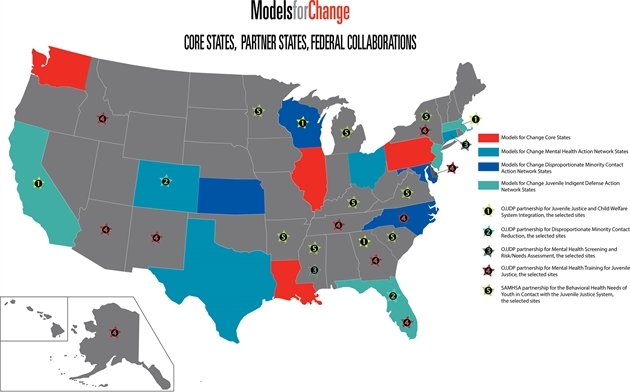Reform states
Models for Change systems reforms were advanced in four core states: Pennsylvania, Illinois, Louisiana, and Washington. These states were strategically selected through a competitive process for their leadership and commitment to change, geographic diversity, differing needs and opportunities, and likelihood to influence reforms in other locations.
States were chosen from different regions—with diverse traditions, political cultures, organizational structures, needs and challenges—to demonstrate system change from a range of starting points and under a variety of conditions. Work in each state was coordinated by a "lead entity," an organization who helped to establish the reform agenda in collaboration with local sites and partners, and managed and monitored its implementation.

View larger map
An additional 12 partner states were involved in Models for Change through participation in action networks in which state and local partners collaborated with national experts and each other in knowledge-and skill-sharing devoted to accelerating reform on particular issues.
Eight more states joined the effort through federal collaborations. The Substance Abuse and Mental Health Services Administration (SAMHSA) collaborated on an effort in eight states to divert youth with behavioral health conditions from the juvenile justice system to community-based programs and services. A collaboration with the Office of Juvenile Justice and Delinquency Prevention (OJJDP) supported juvenile justice reform in four target areas: mental health screening and risk/needs assessment; mental health training for juvenile justice; disproportionate minority contact reduction; and juvenile justice and child welfare system integration.